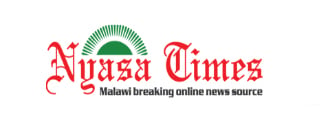Finance Minister Simplex Chithyola Banda is burning the midnight oil, tirelessly working around the clock to secure solutions to Malawi’s crippling foreign exchange (forex) crisis. Chithyola, who has become synonymous with relentless dedication since assuming office, revealed that the government is engaged in productive bilateral negotiations aimed at unlocking substantial forex inflows.


Speaking in an exclusive interview on Friday, Chithyola’s voice bore the fatigue of sleepless nights yet resonated with unwavering resolve. “The urgent challenge affecting our economy is the scarcity of foreign exchange,” he said. “Addressing this requires a combination of immediate and long-term strategies, and I am committed to ensuring that Malawi emerges stronger.”
Chithyola disclosed that, in the short term, the government is actively negotiating bilateral agreements with strategic international partners to secure vital forex inflows.
These high-stakes discussions are being conducted with countries that have the potential to bolster Malawi’s foreign reserves significantly.
“For the long term, we are focusing on diversifying our exports through key sectors such as mining, agriculture, and labour export,” Chithyola stated. “We are also championing import substitution policies to reduce our dependence on imported goods by promoting local manufacturing.”
Despite the immense pressure, Chithyola remains undeterred, driven by a deep-seated commitment to revitalize Malawi’s economy. “Every sleepless night is worth it if it means securing a brighter economic future for Malawians,” he asserted.
Malawi’s economy has been grappling with foreign exchange shortages, low production levels, and elevated inflation and interest rates. The finance minister acknowledged these challenges, noting that they have been exacerbated by years of overreliance on consumptive budgets, limited revenue diversification, and external shocks.
Highlighting the government’s agricultural transformation agenda, Chithyola pointed to the Mega Farm Project as a cornerstone initiative. “This project consolidates underutilized land to create large, mechanized farms producing high-value crops for both local consumption and export,” he explained. “It ensures food security, reduces import reliance, and generates employment.”
Economics expert Dr. Christopher Mbukwa from Mzuzu University emphasized that improving forex reserves requires boosting exports, attracting foreign direct investment, increasing remittances, and promoting tourism. “We can rapidly scale up exports through Mega Farm initiatives, with Admarc playing a pivotal role in coordinating agricultural exports,” Mbukwa suggested.
Reserve Bank Governor MacDonald Mwale echoed these sentiments, stressing the need to stimulate domestic production to enhance export capacity. “Our economy’s challenge is insufficient production, which limits exports and forex supply,” Mwale said. He advocated for credit reporting and asset-based lending to enable businesses to access capital for production using movable assets as collateral.
Malawi’s gross official reserves have dipped below the recommended three months of import cover, straining the importation of critical goods like pharmaceuticals and petroleum products. However, Chithyola’s relentless efforts in bilateral negotiations signal a beacon of hope.
“This is not just about policies; it’s about action,” Chithyola emphasized. “We are leaving no stone unturned in our pursuit of a stable and prosperous Malawi.”
As the nation watches, one thing is clear: Simplex Chithyola Banda will not rest until Malawi’s forex crisis is firmly under control.
Follow and Subscribe Nyasa TV :
Sharing is caring!
















